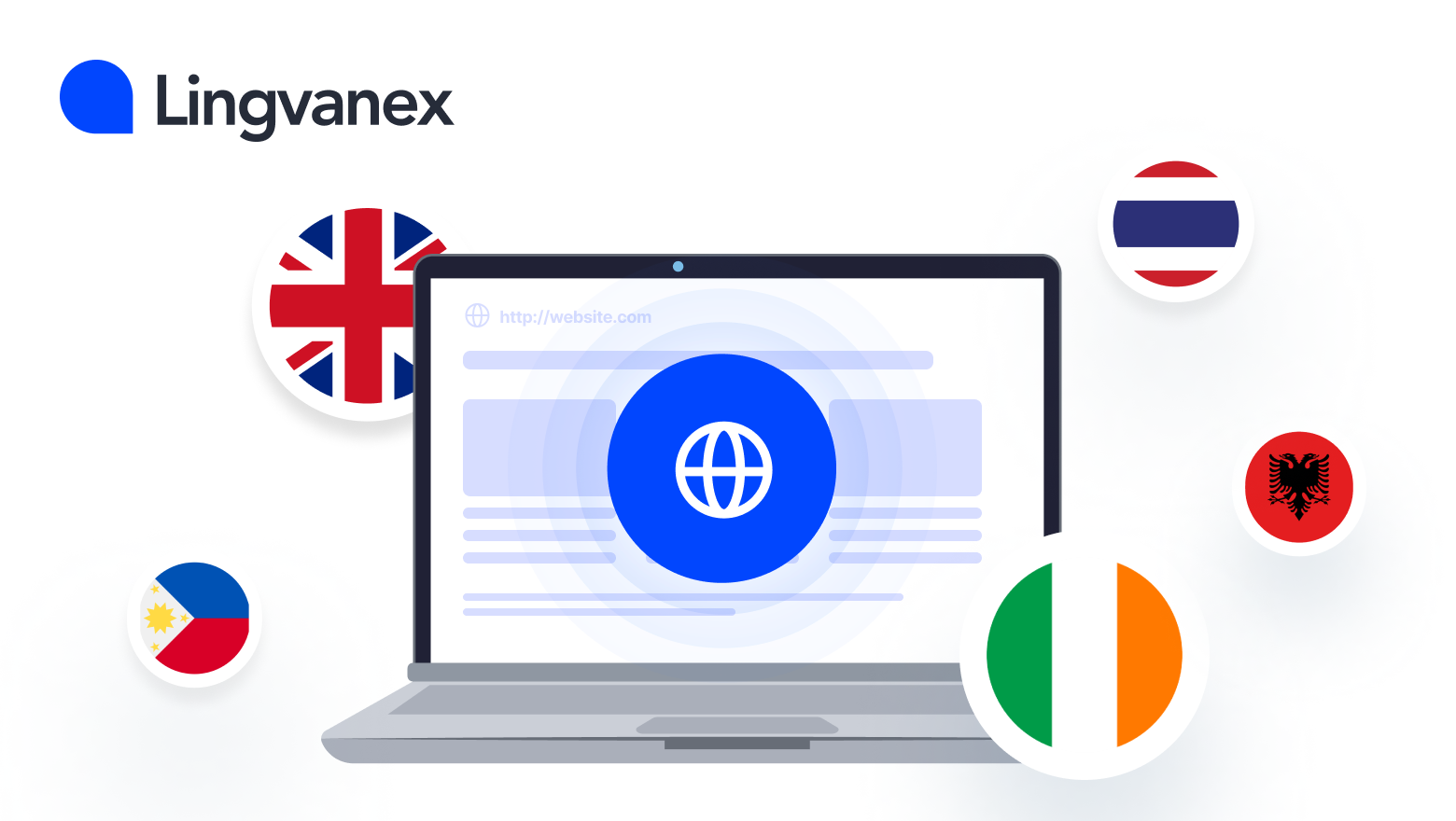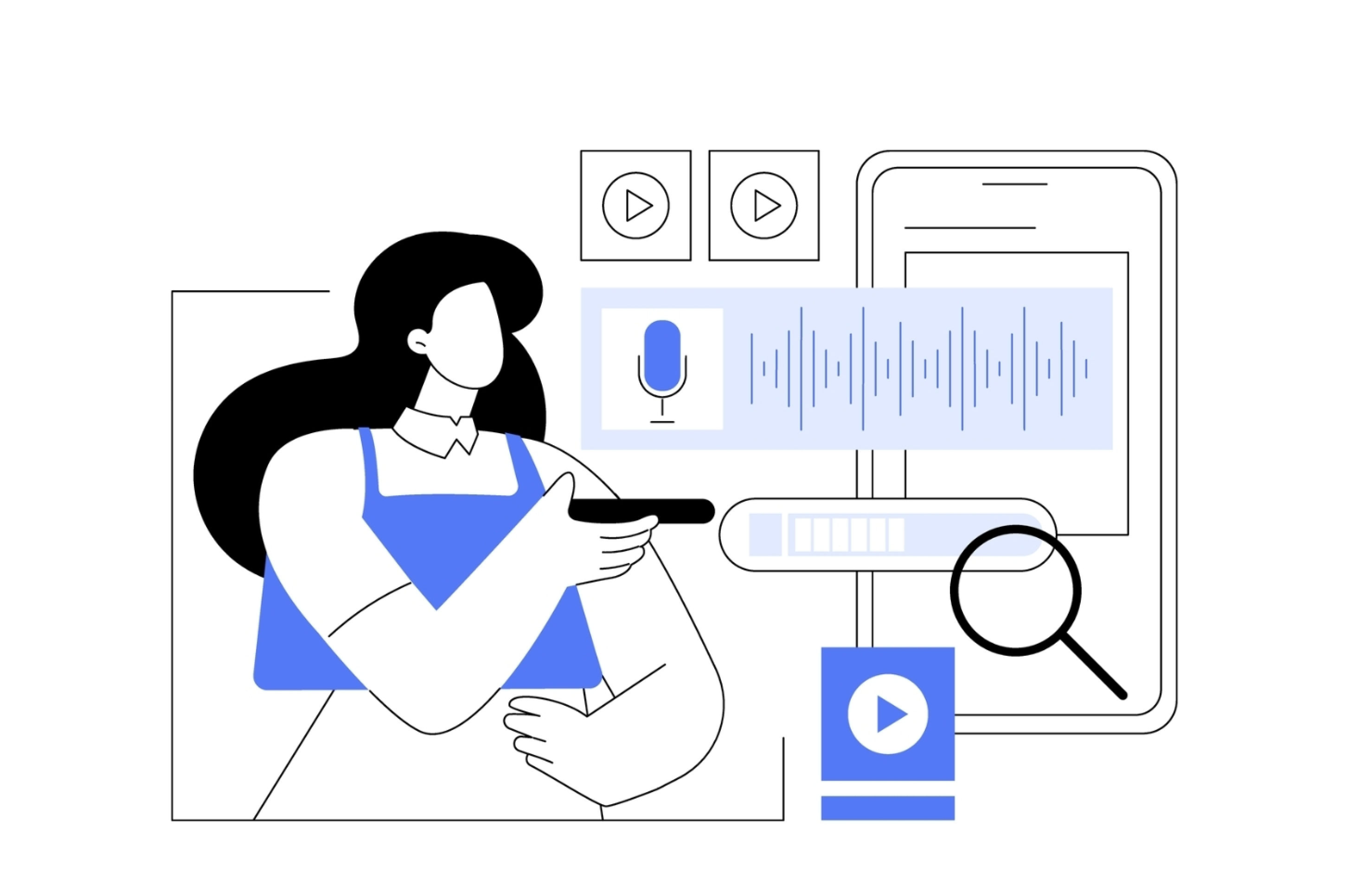The wonderful thing about the internet is that we now have access to a wide variety of content worldwide. However, there are thousands of different languages. So what do you do if the information you need is in another language? No, there is no need to get upset and close the site. Just use a web page translator. Read on to find out how to translate a foreign website.

What is Website Page Translation?
Website page translation is the process of converting the content of a web page into another language while preserving its structure.
Adapting web content to another language allows users from different countries to easily make purchases, book services, leave reviews, and interact with a website. This is important not only for individual users but also for businesses seeking to expand their international audience.
Website translation differs from traditional translation of printed materials because it requires consideration of the specific nature of online content. This includes optimizing text for on-screen readability, adapting multimedia elements, and ensuring correct display across different browsers and devices.
When Might You Need to Translate Web Pages?
Planning a trip. When planning a trip, you will find yourself on pages in the language of your destination country. Website translation will be indispensable when booking tickets and hotels and mapping out your itinerary.
Online shopping. Do not limit your shopping to just one country. From Japanese kimonos to Indian spices, buy what you want, where you want, without language barriers.
Education and research. Science should have no borders, and scientists should have access to materials and resources worldwide. Website translation will ensure this.
Work and business. Do you work with foreign clients or want to start working with them? Use web page translation to understand them better.
Or you are just a curious person who wants to know news from all over the world. As we can see, this function is necessary for almost everyone.
Simple Solutions for Website Translation
Browser-based translation tools
Some browsers have page translation tools already built in.
For example, Google Chrome has an inbuilt page translation based on Google Translate. By right-clicking and selecting 'translate' the user gets the page in the desired language.
The Edge browser has an inbuilt translator based on Microsoft. The principle of operation is the same as Google Translate, just click translate after right-clicking.
Although these tools have limited functionality and are only available for a limited number of browsers, they allow you to get a general idea of content in a foreign language.
Opera also has its own mobile version with an in-built translator based on Lingvanex. It is in the upper-right corner; just tap on three dots and 'translate'.
Extensions and Add-Ons
Extensions are much more flexible and can be freely integrated with virtually any kind of browser, offering high customization based on personal needs.
Yes, there are browser add-ons from Google and Microsoft, but we would recommend not to ignore new solutions that would be able to provide, along with simple text translation, a wider range of functions and other helpful tools, like Lingvanex add-ons. Here's a guide on how to use it:
1) install the extension;
2) click on the extension icon in the toolbar and select the language you want to translate to (the extension detects the original language automatically);
3) highlight a word, phrase, or sentence;
4) instantly get its translation in a pop-up window.
By clicking on the speaker's image you can listen to the original or translated text.
In addition, when you highlight a word, you will see its translation, meaning, pronunciation, and synonyms.
By the way, you can save the translation to come back to this word or phrase again, you just need to go to the translation history and add the needed phrases or words to your bookmarks. A great option for those who are learning a language!
Website Translation for Business
Now that we have realized that website translation is a highly demanded feature, it begs the question: why don't website owners localize their websites themselves? Maybe they are not aware of how to translate the whole website. Or maybe they don't realize they need to do it? Let's explore these questions together.
Why translate your website into other languages?
Let's look at the list of the most popular languages: Chinese (1.3 billion speakers), Spanish (486 million), English (380 million), Arabic (362 million), and Hindi (345 million). See how much potential audience you lose when you decide not to localize your site! While at the end of the last century, 80% of the content on the Internet was in English, at the beginning of the 21st century only 45% of the content was English, and this number continues to decrease. Every year more and more companies are beginning to realize the need to translate their websites.
Researchers at Common Sense Advisory conducted a study in which 75% of those surveyed said they would rather choose a product available in their own language than another.
We are not encouraging you to stop making your web page in English. It is still considered the language of international communication. We are merely drawing your attention to the rise of new trends that honor cultural and linguistic diversity.
If you want to keep up with the latest tendencies, enter new markets, and increase your profits, then you need to consider how to translate your website into other languages.
How to translate your website?
At first glance, this may seem like a daunting task. Where to find so many translators? How much will this amount of work cost?
Don't be intimidated, we have some tips for you on how to do it with maximum efficiency and profit.
- Identify your target markets.
There is no point in translating into all the existing languages in the world, and there are, just think of it, about 7,000. Determining your target audience will help to save money. - Prioritize essential content.
It is worth defining which pages of the website are relevant to translate and which are not. For example, it's essential to translate the page with information about you, your products and contacts. - Leverage machine translation.
Don't be afraid to use the machine translators, they can really do a great job nowadays. Of course, articles containing information about cultural nuances and peculiarities are better left to a human for post-editing, but the bulk of the site can be easily translated by a machine translation API, which can be easily integrated into the structure of your site. Such solutions are offered by Google, Lingvanex and Promt.
The latest translation technologies are now available to everyone from the average Internet user to website owners, and everyone can find something useful for themselves. So give it a try.
Conclusion
Website translation is crucial for users who search for information in their language and eliminate language barriers. There are many solutions for high-quality automatic website translation from built-in browser translation to different browser extensions - each having their limitations. When choosing a website translator it is important to consider your needs and goals.
Website translation is also a vital solution for companies aiming to find clients beyond their national borders. A foreign language version of the website expands the audience and improves the user experience helping to increase sales. The best way to translate a website for business is to use API-based machine translation tools, such as the Lingvanex API. The company provides efficient translation solutions with the acknowledgement of combining AI assisted machine translation and post-editing on behalf of humans.



